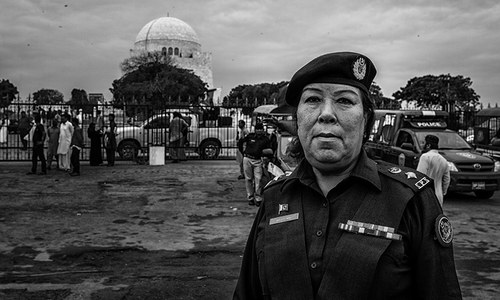
The long-pending anti-honour killing and anti-rape bills were unanimously passed in a joint session of parliament on Thursday. Many lawmakers and activists breathed a sigh of relief, and congratulations ensued thereafter. Soon, however, the anti-honour killing bill ran into opposition from the PPP senators, who raised questions about the original bill being diluted from making honour killings a non-compoundable offence to one that is compoundable, with mandatory life imprisonment.
Dawn spoke to Abira Ashfaq, a member of the law faculty at Szabist and part of the legal aid and research initiative “Qaaf se Qanoon”, to understand the implications of the new law.
What is the significance of the newly passed anti-honour killing bill?
I am not sure how the new law will really change things. The major amendment, dealing with longer prison sentences for perpetrators of honour crimes, seems to be a cosmetic change.
The concept of an honour crime being contained in fasad-fil-arz, known in English as ‘aggravating circumstances’, already existed in the law. Aggravating circumstances include cases of honour murders. And, despite waiver and compounding, courts could sentence defendants under ta’zir (secular punishment) sentences for such crimes.
Under Section 311, even if the victim’s family, in lieu of qisas or equivalent punishment, forgives the perpetrator or settles for cash, the court retains the discretion to punish the defendant under ta’zir in cases of honour murders.
The section still stands; the only change is that from 10 years, the minimum sentence has been increased to life.
This in my view is not a significant amendment; you cannot solve the problem of honour murders by simply prescribing longer sentences and more death penalties.
It is being marketed as ‘Pakistan outlaws honour killing’, but the devil is in the detail. A real difference would be if these crimes were declared unequivocally un-compoundable — that is impervious to private settlements and payouts.
Do you foresee any problems in the implementation of the law?
If you speak to lawyers who actually practice in this area, [you would find that] Section 311is rarely invoked, and most cases are settled outside of court, despite this protective provision.
This is because of the culture at the police stations. Many of the honour murders happen in areas with jirgas and very staunch patriarchal traditions. If the police collude with jirgas and societal custom to forgive and settle honour crimes, the problem does not lie in the law.
The real challenge will be to bring this law to police stations in both rural and urban areas where there is a high incidence of honour murders. It has to be a very active campaign on the government’s part to train police officers who lodge complaints of these crimes to disallow settlements.
How does the law define an ‘honour killing?’ Does having this language and distinction legitimise the crime?
Unfortunately, as I read the new law, there is no change in the definition of an honour killing. An honour killing is still defined as a crime committed in the name, or the pretext, of ‘honour’. Changing the language is something that a lot of activists have been pushing for. Prime Minister Nawaz Sharif had himself said that ‘there is no honour in honour killing’ in his statement. Well, if there is nothing honourable about these murders then maybe the language should be changed.
Do you agree that all murders should be made non-compoundable? What are some hindrances in making this a reality?
No murder should be compoundable or waived. As heinous as honour murders are, all murders are heinous. However, because we are dealing with a Shariah system to actually make that amendment across the board to all murders, whether done for religious, ideological or for any other purpose, it is [always going to receive resistance].
But these piecemeal reforms can be ushered in. If you’re bringing in piecemeal reforms, then at least a larger conversation and discourse can start.
Published in Dawn, October 10th, 2016














































